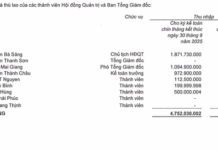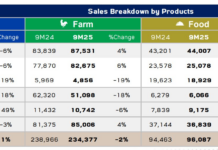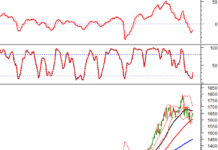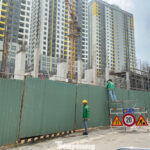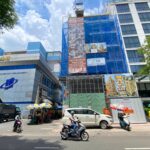On the morning of November 14th, during the discussion on the draft amended Construction Law, many National Assembly delegates expressed concerns about the expansion of the mechanism for exempting construction permits. They also called for clarification on the responsibilities of local authorities, investors, and contractors throughout the entire project management process.
Concerns Over Home Ownership Certification Requirements
Delegate Phạm Văn Hoà (Đồng Tháp Province) noted that exempting construction permits for certain civil works, particularly low-rise single-family homes in rural areas, has reduced administrative procedures and benefited citizens in recent years.
Under current law, citizens can construct homes within planned areas without a permit if there are no disputes. “This regulation is excellent and aligns with administrative reform,” Mr. Hoà stated.
However, practical issues have arisen. Many households face difficulties obtaining home ownership certificates after completing construction due to the lack of a building permit. “This situation leaves citizens confused. I believe a review is necessary to ensure consistency between construction regulations and the certification process,” Mr. Hoà suggested.
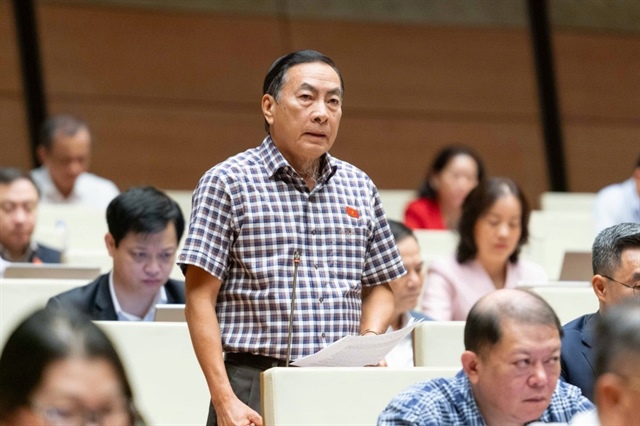 |
He cited examples from Ho Chi Minh City where boundary errors, unauthorized construction, or planning violations were discovered during inspections. Exempting permits in certain cases, he argued, “sometimes complicates enforcement for authorities.”
According to Mr. Hoà, responsibility lies with both regulatory bodies and investors. If information is unclear or initial checks are skipped, completed projects may lead to disputes or require costly corrections.
He also warned against lax oversight, citing a high-rise residential project that faced scrutiny shortly after its structural completion. Such cases highlight the risks of inadequate initial inspection and supervision.
“Many builders rely on habit, resulting in technically unsafe structures. Investors and contractors sometimes compromise quality, endangering residents,” he added.
Mr. Hoà emphasized the need for clear accountability among project management boards, investors, contractors, and supervisors. When issues arise, specific parties must be held responsible. Police have repeatedly uncovered violations due to contractor incompetence or negligence.
“Responsibilities must be clearly defined. Otherwise, no one will be accountable throughout the construction process,” Mr. Hoà stressed.
Calls for Enhanced Post-Construction Inspection and Empowering Commune-Level Authorities
Delegate Nguyễn Thị Việt Nga (Hải Phòng Province) supported shifting from pre-construction to post-construction inspection as an administrative reform measure. However, she noted that effective post-inspection requires a capable oversight system.
She highlighted persistent issues like unauthorized construction, encroachment on public land, and unauthorized changes in building height or function. Many violations go undetected until projects are nearly or fully completed.
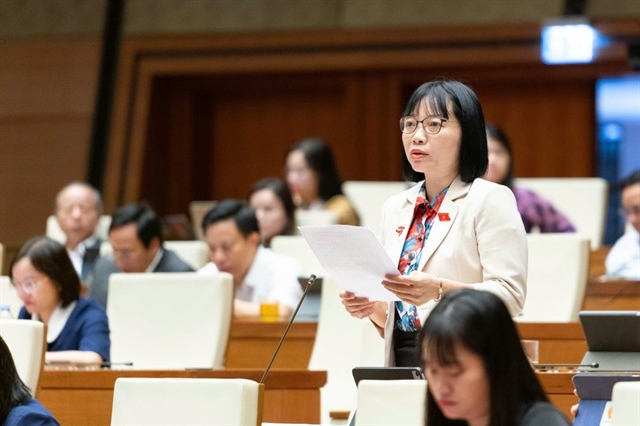 |
With local governments operating under a two-tier model, commune-level construction specialists are scarce and often hold multiple roles. “Staff shortages delay violation detection. Some areas lack specialized personnel entirely,” Ms. Nga observed.
She proposed strengthening post-inspection mechanisms for timely violation detection and enforcement. Commune People’s Committees should be tasked with early-stage inspections, with strict penalties for leaders failing to address prolonged or late-detected violations. Additional support staff should be deployed to ensure effective oversight.
“Expanding the mechanism without adequate personnel will hinder management goals,” Ms. Nga emphasized.
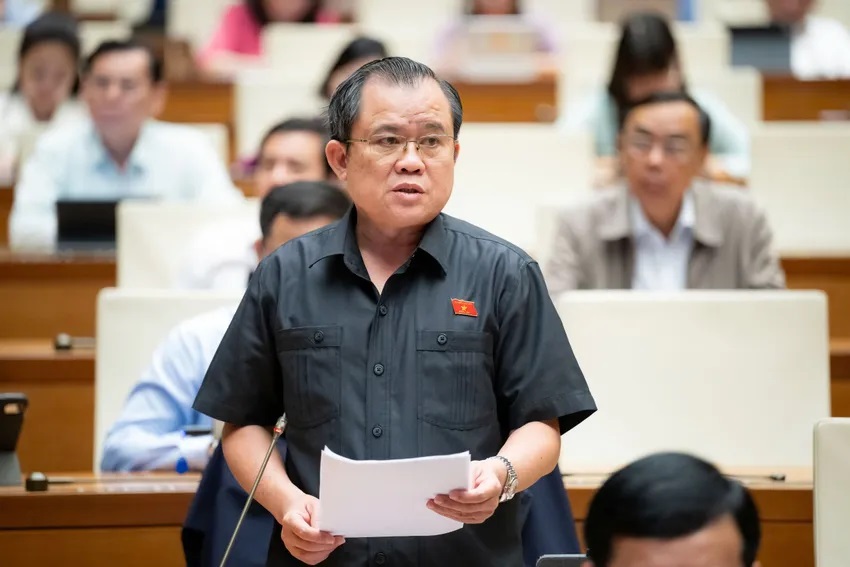 Delegate Nguyễn Tâm Hùng (Ho Chi Minh City). Photo: QH
|
Delegate Nguyễn Tâm Hùng (Ho Chi Minh City) advocated for greater authority at the commune level in managing construction order, particularly under the two-tier urban governance model adopted in many localities.
While Article 94 of the draft law assigns responsibilities to commune People’s Committees, Mr. Hùng called for specific, feasible mechanisms.
He proposed authorizing commune authorities to conduct on-site inspections, issue violation notices, and halt construction of single-family homes and small projects. Simplified procedures should be processed through an electronic one-stop system linked to district and provincial levels, reducing citizen costs and processing times. Leaders should face penalties for management lapses allowing prolonged violations.
Empowering communes with clear responsibilities would shorten oversight distances and improve grassroots monitoring, Mr. Hùng concluded.
REPORTING TEAM
– 10:07 14/11/2025
Ho Chi Minh City Transfers Authority to Issue Construction Permits to Commune-Level People’s Committees
The Ho Chi Minh City Department of Construction has been tasked with developing a software application to monitor the issuance of time-bound construction permits and track the validity period of permitted structures. This system will enable commune-level People’s Committees to implement the process seamlessly, ensuring full connectivity and integration with the Department of Construction’s network.
Unauthorized Construction: Who Will Enforce the New Regulations?
The People’s Committee of Ho Chi Minh City has issued a new decree delegating authority for construction order management, effective November 20th.
Clarifying the Management Responsibilities of Commune Authorities in Cases of Unauthorized Construction
Members of the National Assembly have urged that in cases of construction deviating from approved designs or regulations, the accountability of local commune authorities must be clearly established. Additionally, stringent penalties should be imposed on entities failing to ensure the quality of construction projects.
Latest Updates on Temporary Construction in Ho Chi Minh City
Navigating the complexities of construction permits in Ho Chi Minh City can be daunting. One of the most pressing concerns for both residents and businesses alike is understanding the scope and validity period associated with these time-bound permits.













